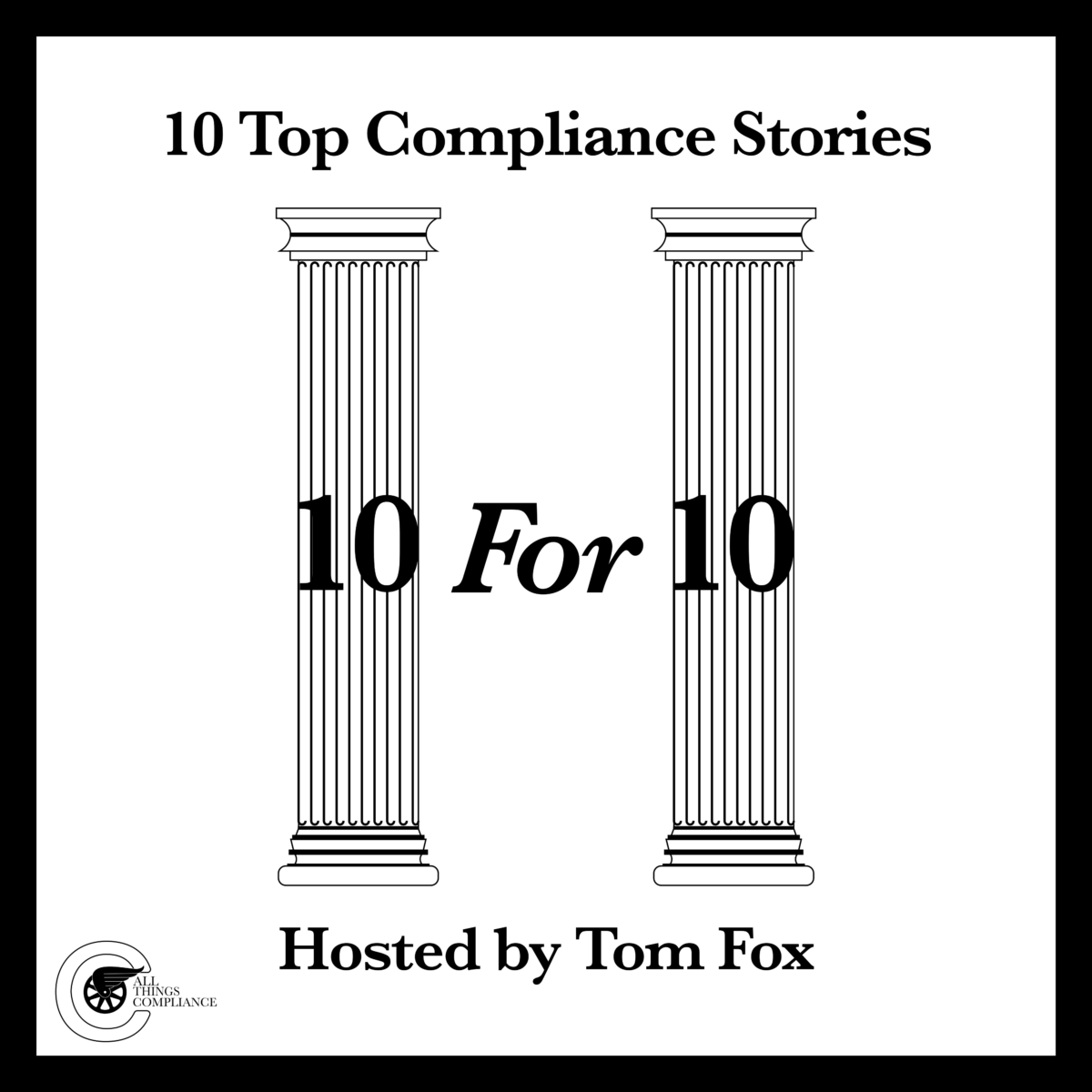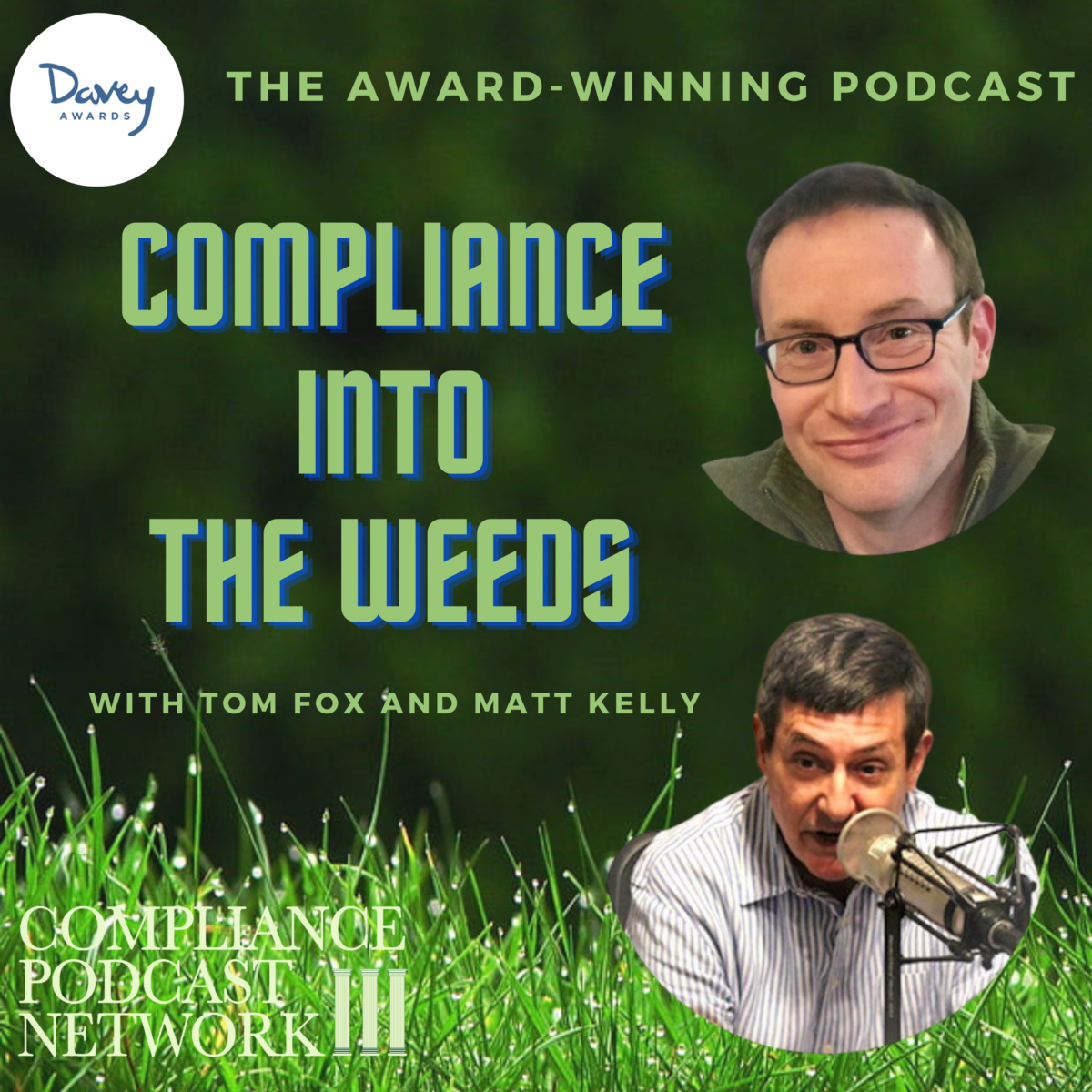Over the past 15 months, the Department of Justice (DOJ) and Securities and Exchange Commission (SEC) have made clear, through three Foreign Corrupt Practices Act (FCPA) enforcement actions and speeches, their priorities in investigations, remediations, and best practices compliance programs. Every compliance professional should study these enforcement actions closely for the lessons learned and direct communications from the DOJ. They should guide not simply your actions should you find yourself in an investigation but also how you should think about priorities.
The three FCPA enforcement actions are ABB from December 2022, Albemarle from November 2023, and SAP from January 2024. Taken together, they point to a clear path for the company that finds itself in an investigation, using extensive remediation to avoid monitoring and provide insight for the compliance professional into what the DOJ expects in a best practices compliance program on an ongoing basis.
Over a series of blog posts, I will lay out what I believe are the Top Ten lessons from these enforcement actions for compliance professionals who find themselves in an enforcement action. Today, we continue with Number 2, the Need for Speed. The DOJ expects a company to share information with regulators as quickly as it finds those facts without necessarily knowing how such admissions might affect its overall case and settlement chances.
In a 2023 speech, Assistant Attorney General Kenneth Polite announced the change I called ‘The Need for Speed.’ Polite characterized the change as going from ‘full’ cooperation to ‘extraordinary’ cooperation. He noted the DOJ has differences between corporations and individuals in both investigations and enforcement, but “concerning how we consider cooperation, the lens and framework through which we analyze the level and degree of cooperation aren’t so different.”
Polite named three concepts, “immediacy, consistency, degree, and impact—that apply to cooperation by both individuals and corporations, which will help to inform our approach to assessing what is “extraordinary.”He went on to note that “In assessing the quality of a cooperator’s assistance, we value: when an individual begins to cooperate immediately, and consistently tells the truth; individuals who allow us to obtain evidence we otherwise couldn’t get, like quickly obtaining and imaging their electronic devices or having recorded conversations; cooperation that produces results, like testifying at a trial or providing information that leads to additional convictions.” He emphasized that there are “examples in the individual context.”
Then came the puzzling part. Polite stated, “We know “extraordinary cooperation” when we see it, and the differences between “full” and “extraordinary” cooperation are perhaps more in degree than kind. To receive credit for extraordinary cooperation, companies must go above and beyond the criteria for full cooperation set in our policies—not just run of the mill, or even gold-standard cooperation, but truly extraordinary.” He stated, “At the same time, the government will not affirmatively direct a company’s internal investigation if it chooses to do one, and companies are often well positioned to know the steps they can take to best cooperate in a particular given case.” He concluded, “And, of course, the facts and circumstances of each case will be unique.”
Perhaps Polite is simply channeling his inner Potter Stewart with his line, ‘We know it…when we see it’. Of course, if two or more people look at the same set of facts, there is always the chance for two or more interpretations. The question then becomes how to define extraordinary cooperation.
It also ties directly into what Deputy Attorney General Lisa Monaco said in announcing the Monaco Doctrine when she stated, “Department prosecutors must gain access to all relevant, non-privileged facts about individual misconduct swiftly and without delay.” [emphasis supplied] This meant, “to receive full cooperation credit, corporations must produce on a timely basis all relevant, non-privileged facts and evidence about individual misconduct such that prosecutors have the opportunity to effectively investigate and seek criminal charges against culpable individuals.” If a company fails to meet this burden, it will “place in jeopardy their eligibility for cooperation credit.” The DOJ goes the next step by placing the burden on companies to demonstrate timeliness, stating they “bear the burden of ensuring that documents are produced promptly to prosecutors.”
In the ABB enforcement action, ABB received credit for extraordinary cooperation based on the following: “(i) promptly providing information obtained through its internal investigation, which allowed the Offices to preserve and obtain evidence as part of their independent investigation; (ii) making regular and detailed factual presentations to the Offices; (iii) voluntarily making foreign-based employees available for interviews in the United States; (iv) producing relevant documents located outside the United States to the Offices in ways that did not implicate foreign data privacy laws; and (v) collecting, analyzing, and organizing voluminous evidence and information that it provided to the Offices, including the translation of certain foreign language documents.”
Some additional insight is found in the SEC Order, which states, “ABB’s cooperation included real-time sharing of facts learned during its internal investigation.” This meant “ABB was sharing information with regulators as quickly as it found those facts, without necessarily knowing how such admissions might affect its overall case and settlement chances.” [emphasis supplied]
Since the SAP enforcement action, extraordinary cooperation has become more difficult to ascertain. While there was no mention of the super duper, extra-credit giving extensive remediation that Kenneth Polite discussed, when SAP began to cooperate, it moved to collaborate extensively. The DPA noted SAP “immediately began to cooperate after South African investigative reports made public allegations of South Africa-related misconduct in 2017 and providing regular, prompt, and detailed updates to the Fraud Section and the Office regarding factual information obtained through its internal investigation, which allowed the government to preserve and obtain evidence as part of its independent investigation…” Most interestingly, the DPA reported that SAP imaged “the phones of relevant custodians at the beginning of the company’s internal investigation, thus preserving relevant and highly probative business communications sent on mobile messaging applications.” This is explicit instruction around messaging apps in FCPA enforcement actions.
Albemarle was credited with significant cooperation by the DOJ during the pendency of its investigation. The NPA noted that the company also received credit for its substantial cooperation and extensive and timely remediation. However, there was only a standard list of items relating to this cooperation and nothing on extraordinary collaboration.
We are back where we started; there is a need for speed. However, the only functional definition we have for it comes from the SEC and not the DOJ. As laid out in the SEC Order for ABB, it is a real-time sharing of facts.














